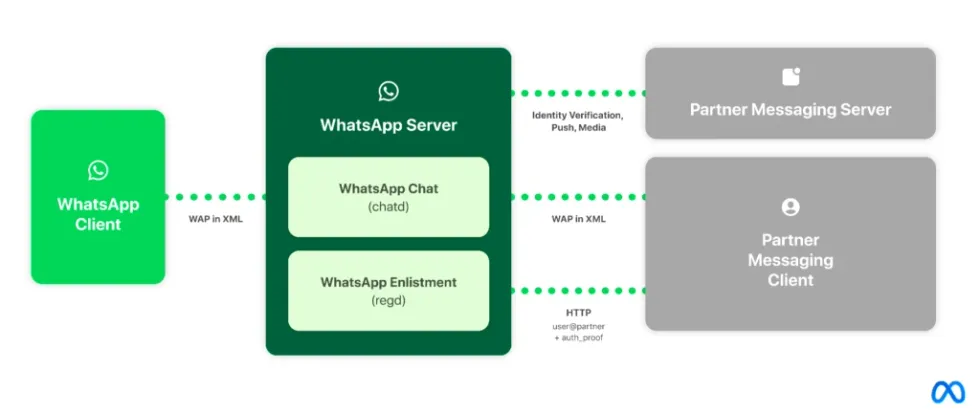WhatsApp will be updated to use the Signal Protocol to send and receive encrypted chats between rival messaging services, like Messenger and Signal, to comply with EU law
UNSPLASH
Digital Markets Act will force a fundamental change to how WhatsApp works
- EU legislation will force technology firms like Meta to work with rival services
- WhatsApp and Messenger users will be able to send texts to other apps
- Meta will use open-source Signal Protocol to ensure everything is encrypted
- Interoperability has to launch "within one year" of Digital Markets Act
- Meta has warned security features will be weakened in other chat apps
Don't Miss
Most Read
Trending on GB News
WhatsApp is undergoing a drastic change to comply with the European Union’s Digital Markets Act (DMA), parent company Meta has confirmed. The world’s most popular messaging service, which boasts more than 2.4 billion active users, will soon be able to send and receive texts across a variety of different platforms, like Messenger, Signal, or Telegram.
Even when sending your message to a contact who isn’t using WhatsApp, everything will be shielded by the same end-to-end encryption, Meta has announced. That means only you and the intended recipient will be able to see the contents of the message.
The Digital Markets Act is designed to encourage competition by preventing vast multinational technology companies from acting as gatekeepers to dominate a particular market. The DMA has forced Apple to allow third-party app stores, including those run by competitors like Microsoft and Google, to be allowed on iPhone and distribute iOS software and games.

Meta has shared precise details into how the fundamental changes to WhatsApp will work
META PRESS OFFICE
The EU legislation, which came into effect on March 7, requires Mark Zuckerberg’s company to allow its messaging services to work with the closest competition. As it stands, WhatsApp only lets you message or call someone who also uses the app. Otherwise, you’ll need to switch to another app.
But soon, WhatsApp will deliver your message to another chat service. Meta will be relying on the open-source Signal Protocol to ensure the same level of encryption is being applied to messages between chat apps. Ironically, Signal was co-created by Brain Acton, who co-founded WhatsApp before leaving the company after it was acquired by Facebook for an eye-watering $16 billion.
The European Union is only mandating support for one-on-one chats and file-sharing of pictures, video files, and audio recordings within the first year of the Digital Markets Act kicking. In future, Meta will need to expand support to include group chats and audio and video calls.
Meta says it’s already spent two years laying the groundwork for this dramatic change in functionality. Engineering Director Dick Brouwer wrote in a company blog post: “Interoperability is a technical challenge – even when focused on the basic functionalities as required by the DMA.”
Despite the precautions put in place with the end-to-end encryption of the Signal Protocol, Meta’s Dick Brouwer has warned that interoperability will likely reduce the level of security.
“We believe it is essential that we give users transparent information about how interop works and how it differs from their chats with other WhatsApp or Messenger users,” Brouwer added.
“This will be the first time that users have been part of an interoperable network on our services, so giving them clear and straightforward information about what to expect will be paramount. For example, users need to know that our security and privacy promise, as well as the feature set, won’t exactly match what we offer in WhatsApp chats.”
Yes, while everything is safely encrypted during transit between messaging apps, Meta cannot guarantee the destination chat app won’t do anything unsavoury with your messages after they’ve been safely — and securely — delivered.
LATEST DEVELOPMENTS
Everything above applies to Meta’s other hugely popular messaging service, Messenger, which started out as a way to send texts to people on Facebook but has since been spun out into a separate chat service.
Metahasn’t confirmed an exact date when users will be able to send messages between WhatsApp and other messaging services.








